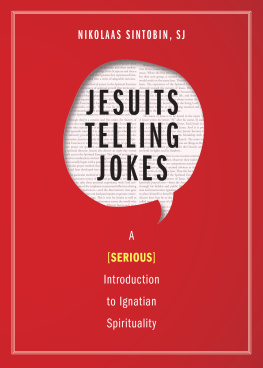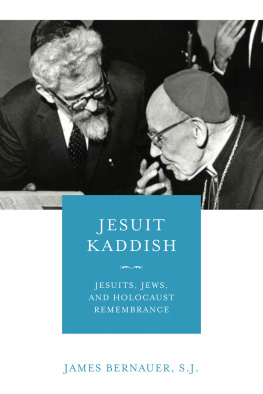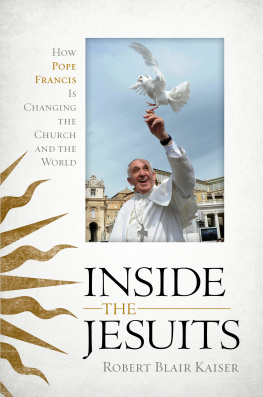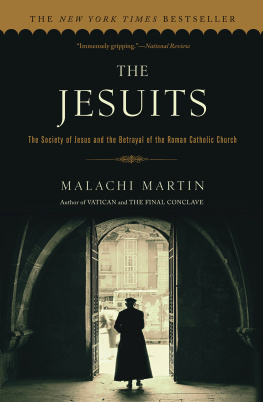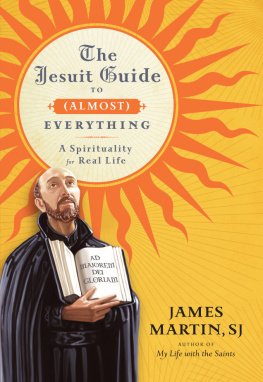This little book is funny and serious at the same time. It describes in clear and engaging language how Jesuits live, pray, and work. It is an excellent introduction to the spirituality of the Jesuits, to their way of proceeding. Nikolaas Sintobin, himself a Jesuit, manages to combine good information with a fluent writing style. The story flows from his pen. You will learn a great deal about St. Ignatius of Loyola and the first Jesuits, but you will also learn just as much about who the Jesuits are today. In twenty concise chapters, Sintobin deals with essential aspects of Ignatian spirituality, such as life in the midst of tensions, the deeply intimate relationship with God, formation for freedom and social involvement, Jesuit obedience, and the guidance and direction of young people and adults, to mention just a few. You also may recognize some aspects of this spirituality in the things Pope Francis does and saysafter all, it was the Jesuits who provided Pope Francis with his formation!
The author is deeply immersed in the Jesuit way of life. He has lived in many Jesuit communities and has worked as an educator in Paris and Antwerp for many years. He is a director of the Spiritual Exercises and is currently active as an Internet chaplain.
Sintobin begins each chapter in this book with a Jesuit joke. He brings both old and new to light by delving into the reservoir of jokes about religious orders. And maybe being able to laugh at themselves is a quality that the Jesuits possess. After all, humor helps enlarge one aspect of a persons life so that it becomes to some extent laughable. But that said, humor would never do any harm. Humor is, moreover, important for a healthy spiritual life, at least according to the famous Dictionnaire de Spiritualit, published by the French Jesuits. Nikolaas Sintobin is therefore in good company! Enjoy these Jesuit jokes and dont take them too seriously.
Who are those Catholic priests who were banned by the Pope at the end of the eighteenth century, only to find one of their own chosen as Pope two hundred and fifty years later?
Were about to find out through jokes about them. There are twenty Jesuit jokes in this book. Hopefully they provide a good laugh, but theyre also intended to illuminate some realities about the Jesuits. Humor often manages to touch, in a very subtle way, the core of the mystery surrounding how people live and work. Humor can make you think. So humor is well-suited for shedding some light on an order that is nearly five centuries old.
Jokes about priests and the religious have been making the rounds for millennia, including those about Jesuits. The Jesuits have been compared to Franciscans, Dominicans, and many other orders. Some jokes may make fun of a Jesuit superiority complex, but those times are over, especially after the Jesuit Pope Francis chose to take the name of the humble founder of the Franciscans.
The founder of the Jesuits, Saint Ignatius of Loyola (14911556), is often shown in paintings as ascetic, strong-willed, and icy-looking. He was ascetic and strong-willed, but those who knew him well give a subtler and more nuanced view of him. Luis Gonalves da Cmara, a Jesuit who lived and worked with him, describes Ignatius as a Spaniard, of small stature, rather lame, with joyful eyes. His friends talk about his sense of humor and capacity to make fun of himself.
Ignatius lived in a time of crisis, much as we do today. After centuries of religious stability, Europe was experiencing a period of religious uncertainty and fear. The discovery of highly developed cultures overseas led to doubts about Christian superiority, and new knowledge challenged established, centuries-old intellectual beliefs. In the midst of countless tensions that were the result of this rapid evolution, Ignatius went in search of meaning in his life. Little by little, he discovered that the all-too-easy answers he used to accept now required more discernment and nuances. Human reality doesnt fit into yes-or-no, black-or-white answers, and this complexity can be found in Ignatiuss spirituality and pedagogy. His complex spirituality can even be nuanced to such an extent that the term Jesuitical has become fairly synonymous with being ambiguous or seemingly hypocritical.
It is clear that Ignatius had an aversion to black-and-white thinking. His fondness for discernment, or prayerfully reflecting on ones inner movements and emotions, meant that he loved paradoxes. His own history had led him to seek God in the fickle nature of concrete experiences rather than in devout thoughts or generalities. In this way, Ignatius laid the foundation for a spiritual tradition that both attracts and repels: It is unpredictable and yet still within the tradition; it is subtle and bold; it trusts in God and in human efforts.
This little book introduces you to various aspects of the Jesuit approach to life in twenty brief sections. I hope you will better understand who the Society of Jesus (the Jesuits) are and gain some insight into Ignatian spirituality, which offers sure guidance for developing a more meaningful life.
Special thanks to Hans Geybels, who gave me the idea for this book. I hope you enjoy it!
Nikolaas Sintobin, SJ
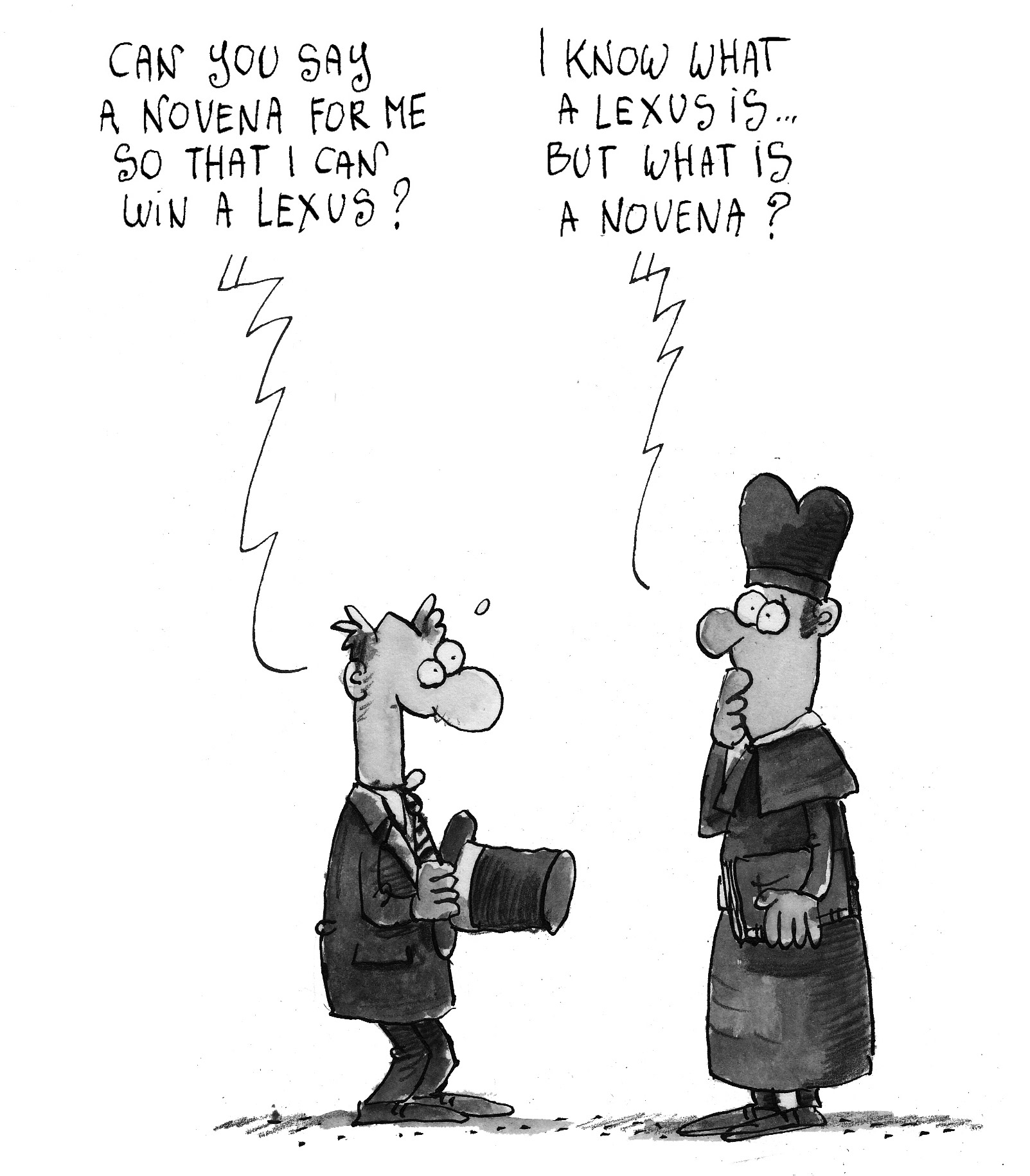
A man goes to a Franciscan and asks him to say a novena for him so that hell win a Lexus in a lottery.
Whats a Lexus?
Its a luxury car.
Good heavens! Saint Francis loved poverty. Sorry, but I couldnt possibly pray for that.
Then the man went to a Dominican: Please say a novena so that I can win a Lexus.
Whats a Lexus?
A luxury car.
Oh, no! Saint Thomas Aquinas warned us against the love of worldly goods. Sorry, but I cant pray for something like that.
As a last resort, the man went to a Jesuit and asked him: Please, Father, will you say a novena for me to win a Lexus?
Whats a novena?
St. Ignatius of Loyola (14911556) was a reformer, a man who updated a number of the traditional customs surrounding monastic and religious life within the Catholic Church. One of his most obvious reformsconsidered scandalous at the timewas doing away with the common chanting/praying of the Liturgy of the Hours as a community. Unlike cloistered monks and most other religious of the time, Jesuits were not required to interrupt their activities several times a day to pray the Liturgy of the Hours in a chapel. Instead, they would organize their daily prayer individually, in consultation with their spiritual director. Ignatius also decided that Jesuits would wear more discreet clothing instead of the monastic habit. Moreover, Jesuits wouldnt live in monasteries, separated and sometimes far from the world. Rather, they would live in ordinary houses among the townspeople.

